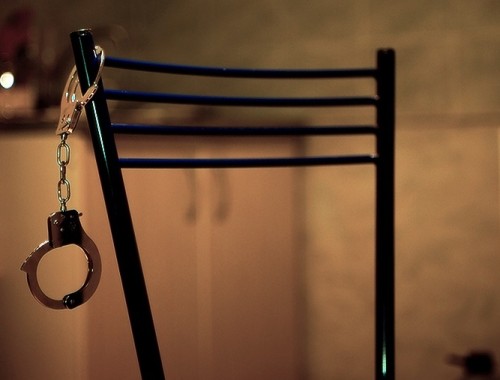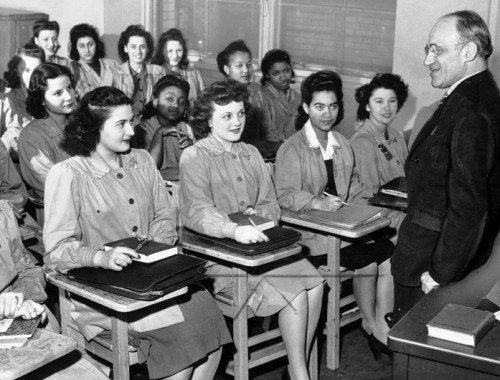Trigger warning for transphobia, slurs.
I’m extremely hesitant to talk about this issue. I’ve been doing all I can to learn from and listen to trans* women and men– to do everything I can to understand and to love. I’m someone who is cisgender (“cis” meaning “on this side” and “trans” meaning “across”)– and completely cisgender: I fit almost totally into cultural and societal gender norms (not conservative evangelical ones, but that’s another conversation). Because of that, it’s difficult for me to truly wrap my mind around what it could be like, or to imagine myself “walking in the footsteps of a stranger.” I try, but I am just now starting to learn, and there’s a lot I don’t understand.
For example, just yesterday I was listening to a woman on twitter, and she was frustrated with the term “transgendered” being used so often in conversations about Chelsea Manning. It took me a while to figure out why, since it was a term I was used to hearing at that point. But then it hit me like a ton of bricks: I’m cisgender, not cisgendered. I am cis. It’s not a verb. “Transgendered” implies that being trans* is a process, an action, when it’s not. Trans* men and women are. A trans* woman, although she might have been born anatomically male, is a woman, end of story.
I’m also learning about concepts like “dead names,”(Chelsea Manning is no longer Bradley, and referring to her as such is more than just insensitive) and how important it is to recognize the humanity and autonomy of trans* people– just like every other human being on this planet.
But, this process is difficult for me, and I’m realizing that it’s directly tied to the Modesty Culture I grew up in.
There are many reasons that women are given for why we’re to be “modest.” Today, many of the reasons I hear revolve around the “stumbling block” idea– that women are to make choices based on how men perceive and react to those choices.
But, in the intensely fundamentalist environment I grew up in, the primary reason for “modesty” was integrally linked to femininity. This remained true throughout my fundamentalist experience– all the way up through college. Modesty, among other things, meant dressing like a woman. Looking like a woman. Acting like a woman. Being lady like and delicate.
Most of that revolved around wearing skirts and culottes. We weren’t allowed to wear anything that even approached something that looked like pants. At one point, I heard a pastor preach against wearing skirts with a jeans-type zipper and button fastener in the front. Because those look like mens’ pants, and that’s not feminine. I also heard messages preached against business suits, blazers, and button-up shirts. If we were going to wear button-up shirts, they could not be made out of cotton, could not be Oxford style, and we had to make sure that they buttoned “correctly.”
Tied up in all of this was horrible, rampant transphobia– in the extreme. Cross-dressing? Abomination. Drag? Straight for the pits of hell. Long hair on a man? A horrible shame and a curse upon him. I can’t tell you how many stories I heard growing up where some preacher was in line somewhere, standing behind a man with long hair, and being “horrified and appalled” when they realized that who they had assumed to be a woman was actually a man. The first time I ever heard about the sorts of procedures and treatments trans* people need, like hormone replacement therapy (part of the standard course of treatment for gender dysphoria), I was in a revival service, and the evangelist was railing against “those disgusting hermaphrodites.”
I’m coming to learn that transphobia is the most accurate term to describe these sorts of people and ideas. It is purely based on fear– and a powerful, nearly-overwhelming fear at that. And it’s not just fear of the unknown, on something that almost can’t be known unless it’s your experience, although that’s a part of it.
It’s fear of what trans* people, and other LGBTQ people while we’re at it, represent to fundamentalist Christians: a breakdown of gender roles, and, therefore, a breakdown of patriarchy. I realize that’s a big, grand claim– almost to the point of being vague and useless. But, I grew up in a culture where they use the term “biblical patriarchy”– and it’s a good thing. I had a hard time, at first, understanding what feminists meant when they said “patriarchy” because it represented “biblical thinking about gender roles” to me.
Trans* people fly in the face of biblical patriarchal teachings. They are living, breathing, proof that what they think about men and woman is essentially, deeply flawed. Gender isn’t a binary. Sex isn’t even a binary. It’s fluid, it doesn’t fit inside boxes, and, sometimes, it defies definition. It isn’t a matter of either/or. Our gender can grow and change over time.
But, for the people I grew up with, not forcing yourself to fit inside Victorian gender boxes is not just a sin, it’s an abomination. Being a woman doesn’t just mean I have a vagina: it means that I’m submissive, passive, vacillating, beautiful, weak, fragile, delicate . . . Being a man means being dominant, aggressive, decisive, bold, strong . . . and straying outside of those boundaries means violating something very deep, something that is seen and portrayed as being so much a part of nature that not identifying as cisgender is unthinkable.
I’m not exactly covering new territory here– everything I’ve said here . . . to anyone who isn’t just now discovering these things, it’s old and tiresome and monotonous. There’s much more vibrant and interesting discussions to be had, experiences to be shared. But, it’s where I am. It’s not where I’ll always be. But I’m learning, and I hope you’ll learn with me.
To quote the magnificent Flavia Dzodan, “my feminism will be intersectional or it will be bullshit.”



